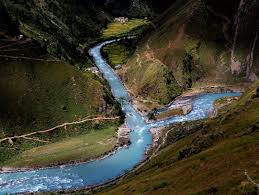PrashantNews
Indian Renewable Energy Development Agency Ltd. (IREDA) on Friday finalized a Joint Venture Agreement with SJVN Ltd., GMR Energy Ltd., and Nepal Electricity Authority (NEA) for the development of the 900 MW Upper Karnali Hydro-electric Project in Nepal.
This strategic initiative aims to strengthen regional energy security and accelerate renewable energy growth, experts said. However, it was not yet clear whether Bangladesh would purchase 500 Mw of power from the project in view of the ouster of the Sheikh Hasina regime.
The joint venture agreement lays out a comprehensive framework for the project development, construction, operation, and maintenance under a Build-Own-Operate-Transfer (BOOT) model, with 25-years project term from the Commercial Operation Date (CoD).
The agreement was formalized in New Delhi in the presence of senior officials from IREDA, SJVN, and GMR Energy Ltd.
Speaking on the occasion, Pradip Kumar Das, CMD, IREDA, said, “This agreement marks a significant step towards realizing our collective vision of sustainable energy development in the region. By leveraging Hydropower’s vast potential, the Upper Karnali project will serve as a model of cross-border collaboration, delivering both economic and environmental benefits.”
GMR said the project will be connected with the Indian grid through dedicated transmission lines which will be developed by GMR Energy through Nepal-based subsidy.
The upper Karnali storage hydropower project is a proposed run-of-the-river hydroelectric plant on the Karnali river in Nepal making it one of the largest projects in the land-locked nation.
Most of the power generated through the project would be exported to India (292 Mw) and Bangladesh (500 Mw) and the remaining 108 Mw to Nepal for local consumption. The expected cost of the dam was 1.5 billion us dollars as per the 2020 estimate.
Bangladesh has stated that it would purchase 500 Mw of power from the project though it was not yet clear whether the country would stick to its earlier stand on the power purchase agreement in view of the political upheavals that led to the ouster of Sheikh Hasina regime.

